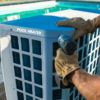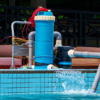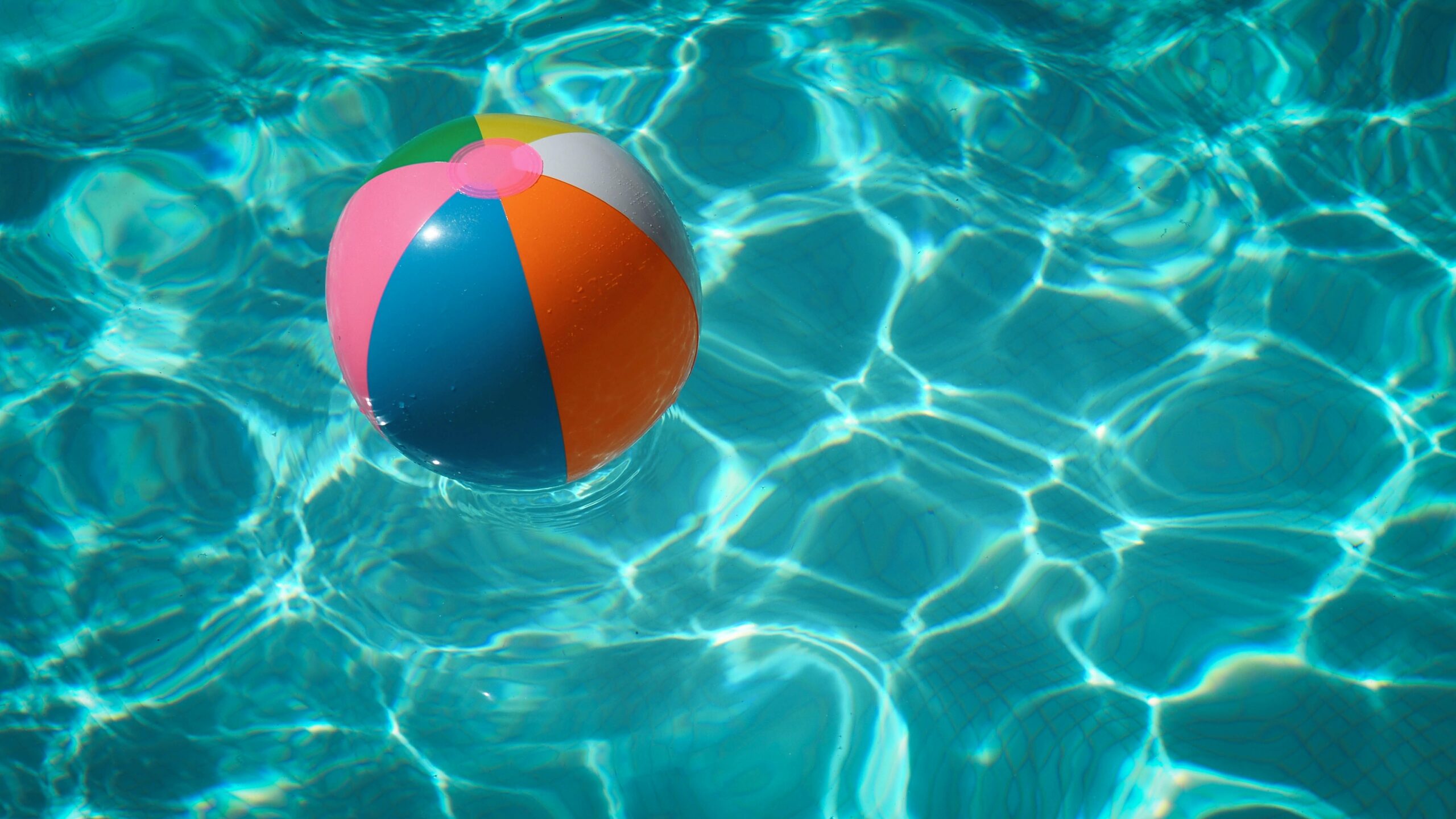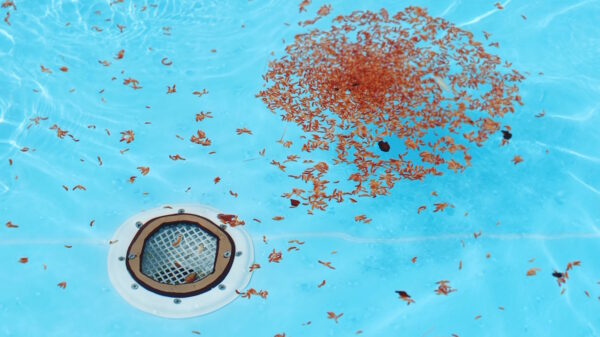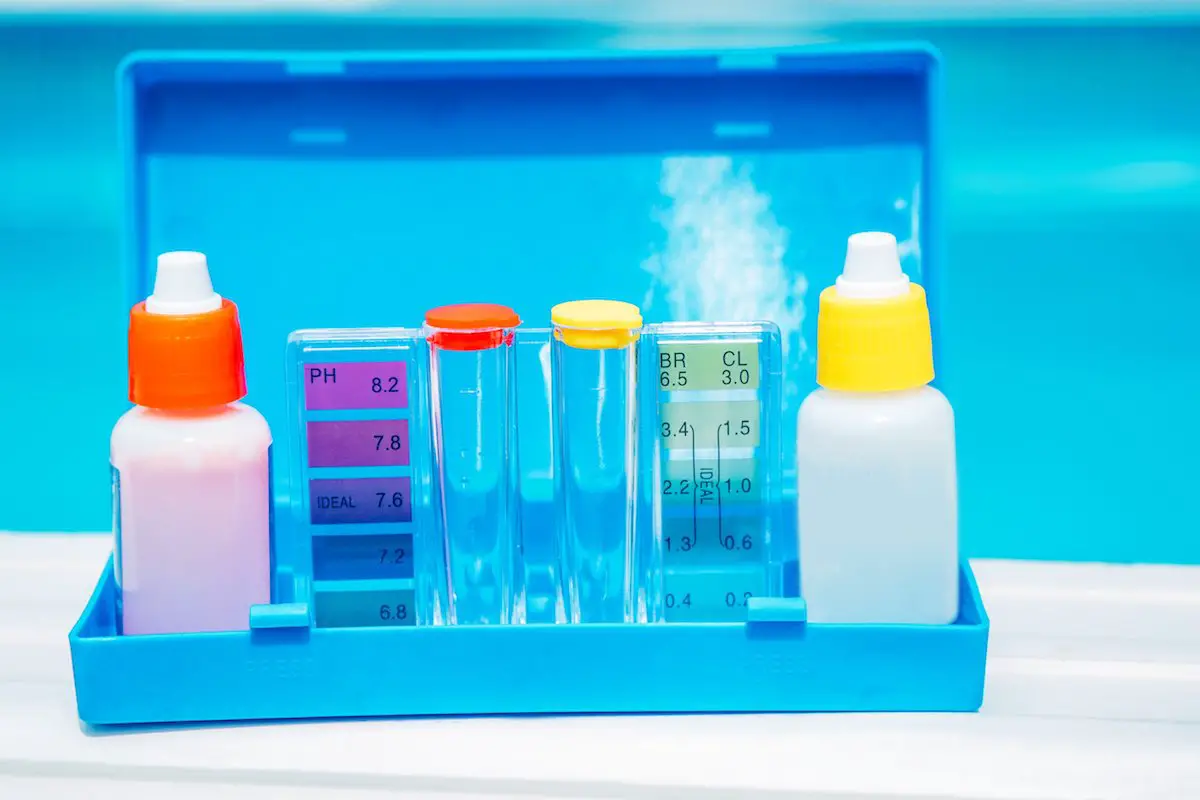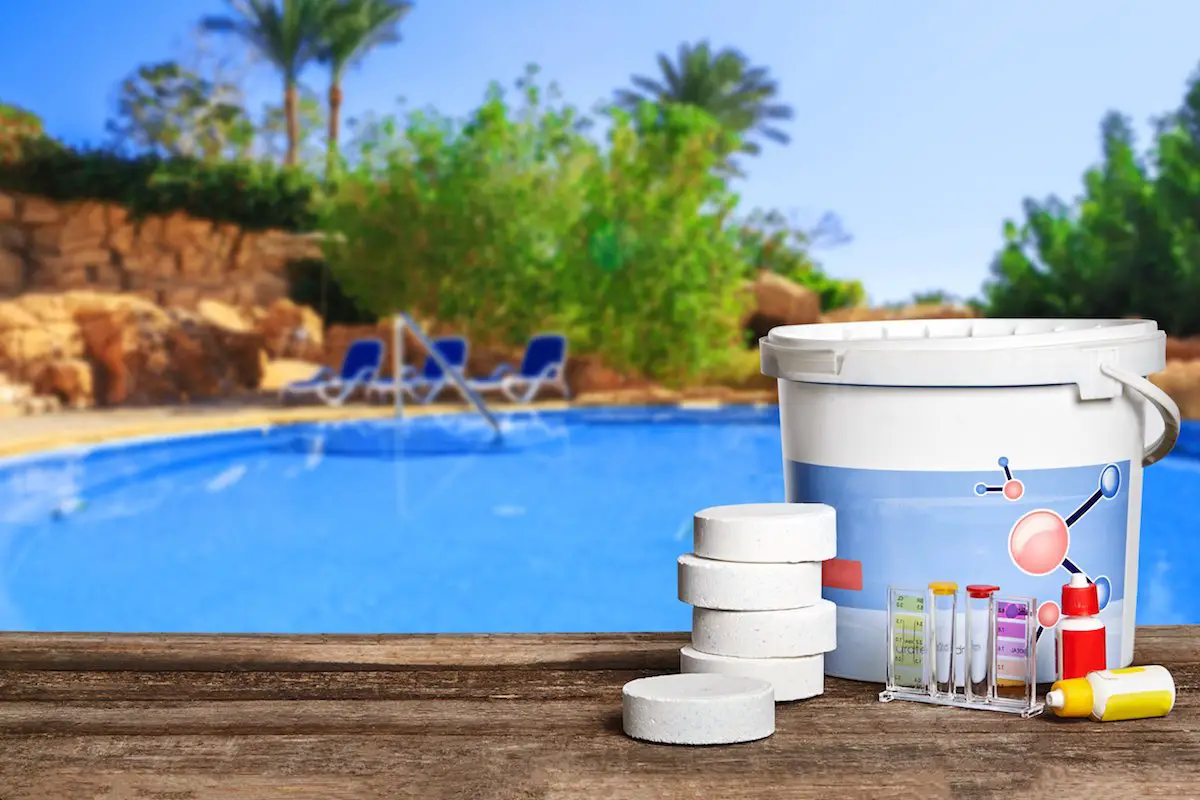Regulating High Phosphate Levels in Your Pool
A backyard swimming pool provides countless hours of fun to everyone in your home but it is also an incredible responsibility. In addition to annual maintenance, you must regularly regulate certain chemical levels, including pH and chlorine. Another important element to monitor is phosphate levels.
So, can you swim in a pool with high phosphate levels? While high phosphate levels can be harmful to aquatic life, they are not dangerous to humans. However, if you have high phosphate levels in your pool, it is likely that you also have high algae levels and high algae can be dangerous to humans. Phosphate is a mineral that is found in water and soil. It is important for plant growth but can be harmful to aquatic life if it is present at high levels.
In this blog post, we will discuss what phosphate is, the ideal phosphate levels for a swimming pool, the dangers of high phosphate levels, and how to decrease phosphate levels in your swimming pool.
What Is Phosphate?
Phosphate is an inorganic chemical that contains the elements phosphorus and oxygen. It is found in water and soil and is an essential nutrient for plant growth. Phosphates can enter swimming pools through runoff from fertilized lawns, wind-blown pollen, decaying leaves, and even swimmer’s waste.
While a certain amount of phosphate is necessary for plant growth, too much phosphate can be harmful to aquatic life. In high concentrations, phosphate can cause algae blooms which deplete oxygen levels in the water and can lead to fish kills.
Ideal Phosphate Levels for Swimming Pools
The ideal phosphate level for a swimming pool is between 0ppm (parts per million) and 0.03ppm. The best way to test phosphate levels is with a phosphate test kit. These kits are available at most pool supply stores.
Dangers of High Phosphate Levels
While high phosphate levels can be harmful to aquatic life, they are not dangerous to humans. However, if you have high phosphate levels in your pool, it is likely that you also have high algae levels.
Algae Blooms
Algae blooms can cause the water to turn green and make the pool difficult to swim in. In addition, algae blooms deplete oxygen levels in the water which can be harmful to fish and other aquatic creatures.

Can You Swim With High Pool Phosphate Levels?
The short answer is yes. However, we do not recommend it. High phosphate levels can lead to algae blooms and deplete oxygen levels in the water. If you must swim in your pool with high phosphate levels, be sure to monitor the oxygen levels closely.
Signs of High Phosphate Levels in Your Pool
There are a few signs that you can look for to determine if you have high phosphate levels in your pool.
- The water is cloudy or green
- You have excessive algae growth
- Your pool filter is working overtime
How to Decrease Phosphate Levels in Your Swimming Pool
If you have high phosphate levels in your swimming pool, there are a few things that you can do to decrease the levels.
- First, you can brush and vacuum the pool regularly. This will help to remove phosphate-rich algae and debris from the pool.
- Second, you can use a phosphate remover. Phosphate removers are available at most pool supply stores.
- Finally, you can increase the level of chlorine in your pool. This will kill algae and bacteria which can help to reduce phosphate levels.
How to Prevent High Phosphate Levels in Your Pool
The best way to prevent high phosphate levels in your pool is to have a regular maintenance schedule. This should include brushing and vacuuming the pool every week, checking pH and chlorine levels regularly, and using a phosphate remover as needed.
By following these simple tips, you can keep your swimming pool safe and clean for everyone to enjoy!

Are There Any Benefits to Phosphate in Your Pool?
While phosphate can be harmful to aquatic life, it can also have some benefits for your pool. Phosphate can help to prevent calcium deposits from forming on pool surfaces.
In addition, phosphate can help to keep algae and bacteria from growing in your pool. However, it is important to note that too much phosphate can also lead to algae blooms.
When used in moderation, phosphate can be a helpful tool for keeping your swimming pool clean and free of calcium deposits.
What Are the Dangers of Low Phosphate Levels in Your Pool?
Just as high phosphate levels can be harmful to aquatic life, low phosphate levels can also be dangerous. Low phosphate levels can cause calcium deposits to form on pool surfaces. These deposits can make the pool difficult to clean and can lead to staining.
In addition, low phosphate levels can allow algae and bacteria to grow unchecked in your pool. This can cause the water to become cloudy and green and can make the pool unsafe to swim in.
The best way to avoid the dangers of low phosphate levels is to maintain a regular maintenance schedule for your pool. This should include checking pH and chlorine levels regularly, and using a phosphate remover as needed. By following these simple tips, you can keep your swimming pool safe and clean for everyone to enjoy!
Regular Pool Maintenance to Prevent High Phosphate Levels
The best way to prevent high phosphate levels in your pool is to have a regular maintenance schedule. This should include brushing and vacuuming the pool every week, checking pH and chlorine levels regularly, and using a phosphate remover as needed.
Can You Monitor Pool Phosphate Levels Yourself?
Yes, you can monitor phosphate levels yourself with a simple test kit. Test kits are available at most pool supply stores.
To use the test kit, follow the instructions on the package. Generally, you will add a sample of pool water to a test tube and then add a chemical indicator. The indicator will change color to indicate the level of phosphate in the water.
How Often to Check Pool Phosphate Levels
It is recommended that you check phosphate levels every two weeks. However, if you are using a phosphate remover, you may need to check more frequently.
When to Call a Pool Professional for High Phosphate Levels
If you are unable to lower the phosphate levels in your pool with regular maintenance and a phosphate remover, you may need to call a pool professional.
A pool professional will be able to help you determine the cause of the high phosphate levels and can recommend a course of action to take.
High Phosphate Levels in Salt Water Pool
If you have a saltwater pool, you may be wondering if high phosphate levels are a concern.
The good news is that saltwater pools are not as susceptible to high phosphate levels as other types of pools. This is because the salt in the water helps to prevent algae and bacteria from growing.
However, it is still important to monitor phosphate levels in your saltwater pool and to use a phosphate remover as needed.
Other Chemicals & Minerals to Monitor In Your Pool
In addition to phosphate levels, there are a few other chemicals and minerals you should monitor in your pool. These include pH levels, chlorine levels, alkalinity levels, and calcium hardness levels.
Ideal Pool pH Levels
The ideal pH level for a pool is between seven and eight. This is the range in which chlorine is most effective at killing bacteria and algae. Pool pH levels can be tested with a simple test kit.

Ideal Pool Chlorine Levels
The ideal chlorine level for a pool is between one and three parts per million. Proper pool chlorine levels will keep the water clean and safe to swim in. Chlorine levels can be tested with a simple test kit.
Ideal Pool Alkalinity Levels
The ideal alkalinity level for a pool is between 80 and 120 parts per million. Proper alkalinity levels will help to maintain pH levels in the pool. Alkalinity levels can be tested with a simple test kit.
Ideal Pool Calcium Hardness Levels
The ideal calcium hardness level for a pool is between 200 and 400 parts per million. Proper calcium hardness levels will help to prevent calcium deposits from forming on pool surfaces. Calcium hardness levels can be tested with a simple test kit.
By keeping an eye on all of these factors, you can ensure that your pool is always safe and clean for everyone to enjoy!
In Conclusion
High phosphate levels in your swimming pool can be harmful to aquatic life and can also lead to calcium deposits on pool surfaces. However, there are some benefits to phosphate in moderation.
The best way to prevent high phosphate levels is to have a regular maintenance schedule for your pool. This should include brushing and vacuuming the pool every week, checking pH and chlorine levels regularly, and using a phosphate remover as needed.
Related Questions
Can I swim in a pool with high chlorine levels?
Yes, you can swim in a pool with high chlorine levels. However, it is important to make sure that the pH level of the pool is also balanced. A pH level that is too high or too low can be dangerous for swimmers
What are the dangers of swimming in a pool with low pH levels?
Some of the dangers of swimming in a pool with low pH levels include skin irritation, eye irritation, and damage to swimsuits. Low pH levels can also make it difficult for chlorine to work effectively, which can lead to bacteria and algae growth.


